
Pig iron market sees price bump on cargo
SMU has confirmed the US sale of 55,000 metric tons (mt) of pig iron at a price of $440/mt FOB South Brazil, according to an executive in the Brazilian trade.

SMU has confirmed the US sale of 55,000 metric tons (mt) of pig iron at a price of $440/mt FOB South Brazil, according to an executive in the Brazilian trade.
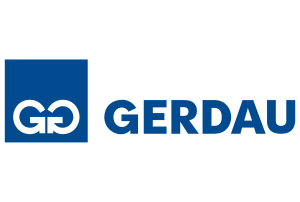
Gerdau’s North American operations closed the fourth quarter of 2025 with another solid performance, according to its parent company’s most recent financial report. Supporting the steelmaker are resilient demand in key end-use markets and a continued rebalancing of domestic supply and imports.
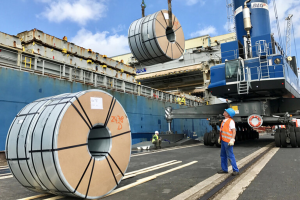
Steel imports slowed further in December and January to some of the lowest volumes recorded in recent years.

Ternium SA has completed its buyout of Nippon Steel and Mitsubishi’s shares in Brazilian flat-rolled steelmaker Usinas Siderúrgicas de Minas Gerais SA – Usiminas (Usiminas).
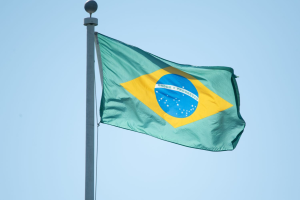
There has been some recent activity of exports of basic pig iron from Brazil. Sources there agree on the activity but diverge on the pricing. What is new to the market in Brazil is the buying interest from the European Union, in particularly, Italy.

US rebar and wire rod prices rose month on month (m/m) alongside continued scrap increases, while merchant bar and structurals were unchanged.

Steel imports remain weak in November and December according to recently released final US Commerce Department data. Many of the sheet and plate products we follow slipped to multi-year lows.

Lower finished steel imports continued to support US domestic prices this month. HR coil prices are up more than $40 per metric ton (mt) month-on-month (m/m) due to higher seasonal demand in January and tightening domestic supply.

US steel imports have fallen sharply under the new 50% Section 232 tariff regime. Jerry Richardson, general director of CSN LLC, discussed on an SMU Community Chat this week how the market is now structurally tighter and more volatile than at any point in the past decade.

CSN LLC General Director Jerry Richardson will join Steel Market Update (SMU) for a Community Chat on Wednesday, Jan. 21, at 11 am ET.
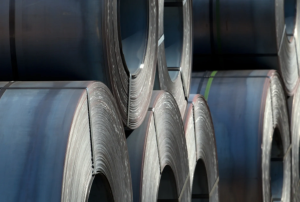
The volume of steel shipped outside of the country increased 11% from September to October 2025 to a seven-month high of 662,000 short tons (st), according to recently released data from the US Department of Commerce.
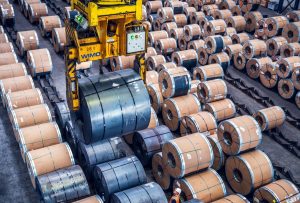
According to recently released final US Commerce Department data, US steel imports rebounded 11% month on month (m/m) in October 2025 after falling to a multi-year low one month earlier. The latest license figures suggest imports eased back by 3% in November and by another 2% in December, with trade again nearing historical lows.

CSN LLC General Director Jerry Richardson will join Steel Market Update (SMU) for a Community Chat on Weds., Jan. 21, at 11 am ET.

The imported basic pig iron market has shown upward price movement over the last week.

The total amount of raw steel produced around the world slipped 3% from October to an estimated 140.1 million metric tons (mt) in November, according to World Steel Association (worldsteel) data. This marks the lowest monthly production rate since December 2023.

The price of pig iron looks to strengthen as producing nations cite rising ferrous scrap values.

Following August’s modest 4% uptick, the volume of steel shipped outside of the country slipped 8% in September to 594,000 short tons, according to recently released data from the US Department of Commerce.

The situation has altered in the Brazilian pig iron market since our last update on Nov. 13. At the time, we reported things were at a standstill for sales to US-based steelmakers.

A colorful serial entrepreneur, NEMO Industries Co-founder and CEO Daniel Liss has done everything from working for Hollywood star Sofia Vergara to building a venture-backed Instagram competitor Dispo. He is new to steel but not short on potentially transformative ideas.
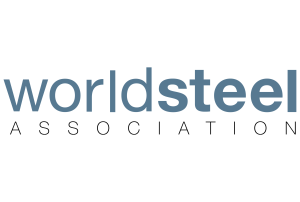
Following four consecutive monthly declines, world crude steel output recovered 1% from September to October to an estimated 143.3 million metric tons (mt), according to the World Steel Association (worldsteel).
Latin American steelmaker Ternium SA is increasing its stake in Brazilian flat-rolled steel producer Usiminas.

US buyers want to drop pig iron prices to levels commensurate with the decline in prime scrap in their domestic market. Prime price shed $20 per gross ton (gt) in September and another $20/gt in October.

World crude steel output declined for the fourth-consecutive month in September, slipping 3% from August to an estimated 141.8 million metric tons (mt), according to the latest figures from the World Steel Association (worldsteel).

SMU spoke with a large channel in Brazil who confirmed his company sold a cargo of 50,000 metric tons (mt) to a US buyer at $383/mt FOB Brazil. That's down $12/mt from the last cargo sold in September.
August marked the second-lowest monthly production rate this year, down 13% from the two-year high of 166.6 million mt in March.
ArcelorMittal has partially restarted operations at its direct reduction plant in Lazaro Cardenas, Michoacan. An explosion on Aug. 18 rocked the massive steelworks on Mexico’s Pacific coast, impacting production of direct-reduced iron (DRI).

The Brazilian-US pig iron market has remained quiet, market sources told SMU.

he US longs market remained stable this month despite ongoing challenges from tariff-impacted imports, even as end-use demand was relatively unchanged and scrap prices held flat in August.
World crude steel output declined for a second straight month in July, falling 2% from June to an estimated 150.1 million metric tons (mt), according to recent data published by the World Steel Association (worldsteel).

The administration continues to negotiate deals with US trading partners, and the reciprocal tariff program appears poised for further modification. This week, we focus on other important developments that may have received less media attention.